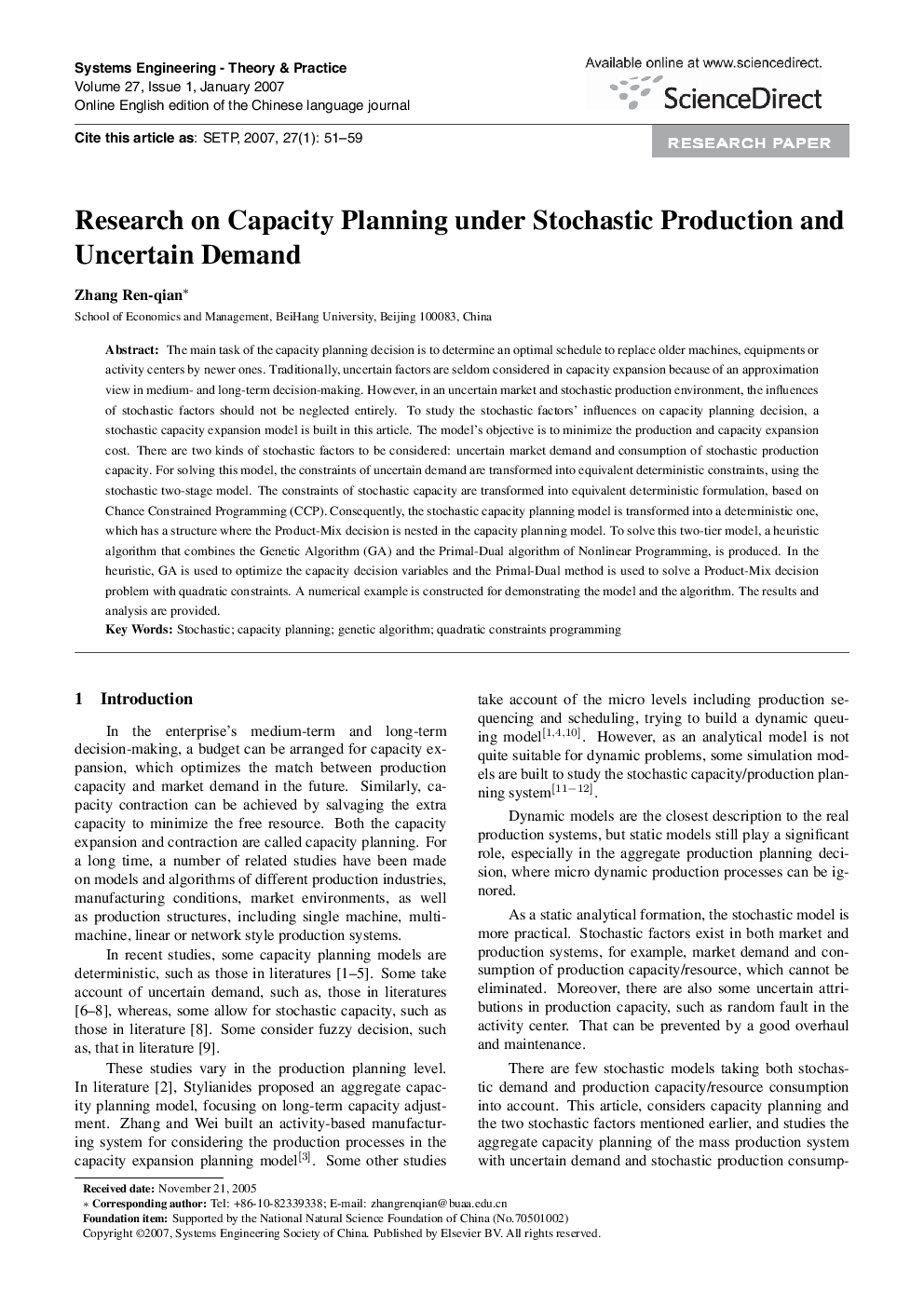| Article ID | Journal | Published Year | Pages | File Type |
|---|---|---|---|---|
| 1144437 | Systems Engineering - Theory & Practice | 2007 | 9 Pages |
The main task of the capacity planning decision is to determine an optimal schedule to replace older machines, equipments or activity centers by newer ones. Traditionally, uncertain factors are seldom considered in capacity expansion because of an approximation view in medium- and long-term decision-making. However, in an uncertain market and stochastic production environment, the influences of stochastic factors should not be neglected entirely. To study the stochastic factors' influences on capacity planning decision, a stochastic capacity expansion model is built in this article. The model's objective is to minimize the production and capacity expansion cost. There are two kinds of stochastic factors to be considered: uncertain market demand and consumption of stochastic production capacity. For solving this model, the constraints of uncertain demand are transformed into equivalent deterministic constraints, using the stochastic two-stage model. The constraints of stochastic capacity are transformed into equivalent deterministic formulation, based on Chance Constrained Programming (CCP). Consequently, the stochastic capacity planning model is transformed into a deterministic one, which has a structure where the Product-Mix decision is nested in the capacity planning model. To solve this two-tier model, a heuristic algorithm that combines the Genetic Algorithm (GA) and the Primal-Dual algorithm of Nonlinear Programming, is produced. In the heuristic, GA is used to optimize the capacity decision variables and the Primal-Dual method is used to solve a Product-Mix decision problem with quadratic constraints. A numerical example is constructed for demonstrating the model and the algorithm. The results and analysis are provided.
